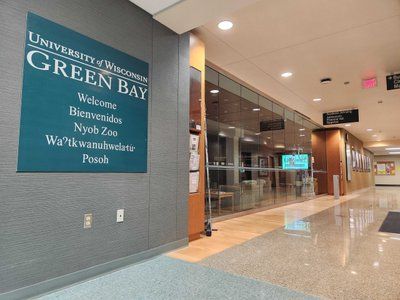By Tom Still
MADISON – There’s nothing new or even unexpected about the love-hate relationship between religion and science. The same Catholic Church that has often been a patron of the sciences – think Gregor Mendel and the study of genetics, or Antoine Lavoisier and modern chemistry – also found Galileo Galilei “gravely suspect of heresy” in 1633 for asserting Earth circled the sun.
That history of friction between science and theology resurfaced in Wisconsin recently with the announcement that the 7,400 children who attend schools in the Madison Catholic Diocese will no longer be taking field trips to the Wisconsin Institutes of Discovery. That’s because the facility on the UW-Madison campus conducts research using human embryonic stem cells.
The church has been pretty clear on how it feels about embryonic stem cells, so it shouldn’t be all that surprising that it would draw a bright line about that particular discipline. Whether the rest of us like it or not, that position is consistent with the Catholic view that life begins at conception. For many in the church, it is a matter of faith.
Read this column in the Wisconsin State Journal here.
A separate question is whether the Madison Diocese should officially limit student access to a whole range of scientific disciplines– most of which have nothing to do with human embryonic stem cells – taking place inside one of the nation’s leading research facilities.
Student field trips occur frequently at the Wisconsin Institutes for Discovery, which opened in late 2010 with a mix of private and public support. It is one of a relative handful of interdisciplinary research institutes in the nation, meaning it’s a place where discovery can be accelerated by interaction among researchers who may be chemists, biologists, computer scientists, engineers or physicists.
Some of those scientists work with stem cells, but it’s only a relative handful within the full spectrum of scientific activities in the institute, which includes the public Wisconsin Institute for Discovery and the private Morgridge Institute for Research.
Even among the scientists who work with stem cells, there are important distinctions. Human embryonic stem cell research was pioneered at the UW-Madison by Dr. James Thomson and his team – but the campus was also one of two breakthrough sites in the world for the development of induced pluripotent stem cells. Those stem cells are essentially “reverse engineered” from other cells, usually skin cells, to perform like embryonic cells.
These types of stem cells are vital to understanding how the body works, how it might repair itself and in developing everything from new drugs to ways to combat birth defects.
In fact, the Pontifical Academy of Sciences held a workshop on stem cell research in 2012. The event focused on the potential of the induced pluripotent cells, which are among those being used by some researchers at the institute. Some researchers believe such cells could replace embryonic stem cells in time.
If the Pontifical Academy of Sciences was curious enough to learn more, one might think the Madison Diocese would also be open to the possibility that advances in stem cell science could someday negate faith-based questions.
“The Wisconsin Institutes for Discovery is a link between schools and the excitement of the scientific community,” wrote one parochial school educator, who asked to remain unnamed. “This organization is actively supporting schools in their endeavor to promote (science, technology, engineering and math) programs. If the Catholic schools want to continue their mission of promoting student growth, they cannot boycott entire institutions whose mission is so clearly meant to support this goal.”
So far, the Madison Diocese is the only one of five dioceses in Wisconsin to ban field trips to the institutes. As a practical matter, only eight Catholic schools have toured the facility over time, so the ban may not mean much in terms of overall numbers.
For example, the upcoming Wisconsin Science Festival in late September is shaping up to be one of the largest hands-on events for children in the state. A spokeswoman for the institute said it’s the only one of its kind in the Midwest.
Catholic school students don’t have to tour the institute’s stem cell labs (actually, they can’t for security reasons) or work with such cells in student-access labs. There’s plenty more to see and experience in this $210-million facility, from 3-D printing technology to prehistoric plants. It took the church nearly 400 years to apologize for the Galileo affair; let’s hope the diocese softens its field-trip ban a bit sooner.





